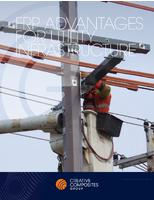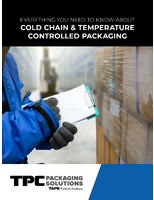Proposed TSCA IUR Rule calls out electronics industry.
Share:
Press Release Summary:
Electronics manufacturers who send byproducts and waste for recycling are included among targets of proposed rule from EPA, which expands reporting requirements under Toxic Substances Control Act Inventory Update Reporting rule that requires manufacturers of chemical substances to report on manufacturing, importation, processing, and use of those chemical substances. IPC urges members to oppose EPA's regulation of byproducts and waste under TSCA as well as proposed changes to reporting requirements.
Original Press Release:
Proposed TSCA IUR Rule Specifically Calls Out Electronics Industry - IPC Urges Industry Help During Comment Period
BANNOCKBURN, Ill., USA, - Electronics manufacturers who send byproducts and waste for recycling are included among the targets of a proposed rule from the EPA published on August 13. The rule expands the reporting requirements under the Toxic Substances Control Act (TSCA) Inventory Update Reporting (IUR) rule that requires manufacturers of chemical substances to report on the manufacturing, importation, processing, and use of those chemical substances. The EPA estimates it will cost each facility $48,700 and take 792 hours to comply with the proposed rule. IPC - Association Connecting Electronics Industries® urges industry members to actively join its efforts to oppose the EPA's regulation of byproducts and waste under TSCA as well as the proposed changes to the reporting requirements.
According to the EPA, byproducts and waste that are sent for recycling are subject to IUR rule because they serve a commercial purpose as a feedstock to new products. Under the proposed rule, manufacturers will have to comply not only with existing TSCA IUR rule requirements for byproducts and waste sent for recycling, but also with even more burdensome reporting requirements. Specifically, the proposed rule:
o Changes the definitions of manufacturer use and commercial use to include EPA's interpretation that recycled byproducts must be reported under IUR;
o Requires manufacturers to report if the production volume of a chemical substance meets or exceeds the 25,000 lb/year threshold during ANY calendar year since the last principal reporting year;
o Requires manufacturers to report every four years instead of every five years;
o Requires more detailed manufacturing data as well as processing and use data to be reported; and
o Requires additional reporting for a variety of factors, including the number of workers likely to be exposed to the chemical and identifying consumer and commercial categories associated with the chemical substance.
In addition, the EPA's proposed reporting requirements would apply to the 2011 submission reporting of 2010 manufacturing, processing and use information. This means that manufacturers should be collecting data now in order to submit it next summer, even though the details on what data should be collected have not been communicated.
"My facility sends manufacturing byproducts for recycling, and now we could be subject to an additional set of chemical reporting regulations that were never considered applicable or relevant," says Bret Bruhn, environmental operations manager for Viasystems.
Fern Abrams, IPC director of environmental programs and government relations explains that the EPA even considers F006 electroplating sludge - a listed hazardous waste under RCRA - as a new chemical if it is recycled. Over the past several years, IPC and a coalition of affected industries have had several meetings with the EPA vigorously opposing their interpretation.
The EPA's comment period ends October 12. IPC will be submitting comments that thoroughly oppose EPA's byproducts interpretation as well as the proposed burdensome reporting requirements, but Abrams fears this will not be enough. "We need our members to get actively involved," says Abrams.
For more information and to get involved, visit www.ipc.org/ehs or contact Stephanie Castorina, IPC manager of environmental programs, at StephanieCastorina@ipc.org or +1 703-522-0225.
About IPC
IPC (www.IPC.org) is a global trade association based in Bannockburn, Ill., dedicated to the competitive excellence and financial success of its 2,700 member companies which represent all facets of the electronics industry, including design, printed board manufacturing, electronics assembly and test. As a member-driven organization and leading source for industry standards, training, market research and public policy advocacy, IPC supports programs to meet the needs of an estimated $1.7 trillion global electronics industry. IPC maintains additional offices in Taos, N.M.; Arlington, Va.; Garden Grove, Calif.; Stockholm, Sweden; Moscow, Russia; Bangalore, India; and Shanghai, Shenzhen and Beijing, China.




